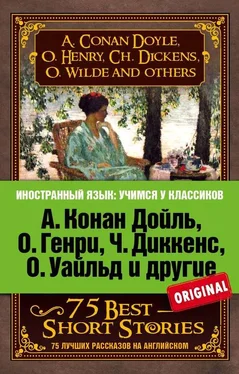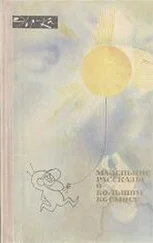‘Aye, sir – sartain.’
‘Come wi’ me, Tom – we’ll gi’ a last look round the yard.’
So, side by side, with many a jealous look right and left, and over their shoulders, they went in silence. On entering the old-fashioned quadrangle, surrounded by stables and other offices – built in the antique cage-work fashion – they stopped for a while under the shadow of the inn gable, and looked round the yard, and listened. All was silent – nothing stirring.
The stable lantern was lighted; and with it in his hand Tony Turnbull, holding Tom Scales by the shoulder, advanced. He hauled Tom after him for a step or two; then stood still and shoved him before him for a step or two more; and thus cautiously – as a pair of skirmishers under fire – they approached the coach-house door.
‘There, ye see – all safe,’ whispered Tom, pointing to the lock, which hung – distinct in the moonlight – in its place. ‘Cum back, I say!’
‘Cum on, say I!’ retorted the landlord valorously. ‘It would never do to allow any tricks to be played with the chap in there’ – he pointed to the coach-house door.
‘The coroner here in the morning, and never a corpse to sit on!’ He unlocked the padlock with these words, having handed the lantern to Tom. ‘Here, keck in, Tom,’ he continued; ‘ye hev the lantern – and see if all’s as ye left it.’
‘Not me – na, not for the George and a’ that’s in it!’ said Tom, with a shudder, sternly, as he took a step backward.
‘What the – what are ye afraid on? Gi’ me the lantern – it is all one: I will.’
And cautiously, little by little, he opened the door; and, holding the lantern over his head in the narrow slit, he peeped in – frowning and pale – with one eye, as if he expected something to fly in his face. He closed the door without speaking, and locked it again.
‘As safe as a thief in a mill,’ he whispered with a nod to his companion. And at that moment a harsh laugh overhead broke the silence startlingly, and set all the poultry in the yard gabbling.
‘Thar he be!’ said Tom, clutching the landlord’s arm – ‘in the winda – see!’
The window of the cedar-room, up two pair of stairs, was open; and in the shadow a darker outline was visible of a man, with his elbows on the window-stone, looking down upon them.
‘Look at his eyes – like two live coals!’ gasped Tom.
The landlord could not see all this so sharply, being confused, and not so long-sighted as Tom.
‘Time, sir,’ called Tony Turnbull, turning cold as he thought he saw a pair of eyes shining down redly at him – ‘time for honest folk to be in their beds, and asleep!’
‘As sound as your sexton!’ said the jeering voice from above.
‘Come out of this,’ whispered the landlord fiercely to his hostler, plucking him hard by the sleeve.
They got into the house, and shut the door.
‘I wish we were shot of him,’ said the landlord, with something like a groan, as he leaned against the wall of the passage. ‘I’ll sit up, anyhow – and, Tom, you’ll sit wi’ me. Cum into the gun-room. No one shall steal the dead man out of my yard while I can draw a trigger.’
The gun-room in the George is about twelve feet square. It projects into the stable-yard and commands a full view of the old coach-house; and, through a narrow side window, a flanking view of the back door of the inn, through which the yard is reached.
Tony Turnbull took down the blunderbuss – which was the great ordnance of the house – and loaded it with a stiff charge of pistol bullets.
He put on a great-coat which hung there, and was his covering when he went out at night, to shoot wild ducks. Tom made himself comfortable likewise. They then sat down at the window, which was open, looking into the yard, the opposite side of which was white in the brilliant moonlight.
The landlord laid the blunderbuss across his knees, and stared into the yard. His comrade stared also. The door of the gun-room was locked; so they felt tolerably secure.
An hour passed; nothing had occurred. Another. The clock struck one. The shadows had shifted a little; but still the moon shone full on the old coach-house, and the stable where the guest’s horse stood.
Turnbull thought he heard a step on the back-stair. Tom was watching the back-door through the side window, with eyes glazing with the intensity of his stare. Anthony Turnbull, holding his breath, listened at the room door. It was a false alarm.
When he came back to the window looking into the yard:
‘Hish! Look thar!’ said he in a vehement whisper.
From the shadow at the left they saw the figure of the gaunt horseman, in short cloak and jack-boots, emerge. He pushed open the stable door, and led out his powerful black horse. He walked it across the front of the building till he reached the old coach-house door; and there, with its bridle on its neck, he left it standing, while he stalked to the yard gate; and, dealing it a kick with his heel, it sprang back with the rebound, shaking from top to bottom, and stood open. The stranger returned to the side of his horse; and the door which secured the corpse of the dead sexton seemed to swing slowly open of itself as he entered, and returned with the corpse in his arms, and swung it across the shoulders of the horse, and instantly sprang into the saddle.
‘Fire!’ shouted Tom, and bang went the blunderbuss with a stunning crack. A thousand sparrows’ wings winnowed through the air from the thick ivy. The watch-dog yelled a furious bark. There was a strange ring and whistle in the air. The blunderbuss had burst to shivers right down to the very breech. The recoil rolled the inn-keeper upon his back on the floor, and Tom Scales was flung against the side of the recess of the window, which had saved him from a tumble as violent. In this position they heard the searing laugh of the departing horseman, and saw him ride out of the gate with his ghastly burden.
* * * * *
Perhaps some of my readers, like myself, have heard this story told by Roger Turnbull, now host of the George and Dragon, the grandson of the very Tony who then swayed the spigot and keys of that inn, in the identical kitchen of which the fiend treated so many of the neighbours to punch.
* * * * *
What infernal object was subserved by the possession of the dead villain’s body, I have not learned. But a very curious story, in which a vampire resuscitation of Crooke the sexton figures, may throw a light upon this part of the tale.
The result of Turnbull’s shot at the disappearing fiend certainly justifies old Andrew Moreton’s dictum, which is thus expressed in his curious ‘History of Apparitions’: ‘I warn rash brands who, pretending not to fear the devil, are for using the ordinary violences with him, which affect one man from another – or with an apparition, in which they may be sure to receive some mischief. I knew one fired a gun at an apparition and the gun burst in a hundred pieces in his hand; another struck at an apparition with a sword, and broke his sword in pieces and wounded his hand grievously; and ’tis next to madness for anyone to go that way to work with any spirit, be it angel or be it devil.’
Making a Magazine (Stephen Leacock)
I dreamt one night not long ago that I was the editor of a great illustrated magazine. I offer no apology for this: I have often dreamt even worse of myself than that.
In any case I didn’t do it on purpose: very often, I admit, I try to dream that I am President Wilson [341], or Mr. Bryan [342], or the Ritz-Carlton Hotel, or a share of stock in the Standard Oil Co. for the sheer luxury and cheapness of it. But this was an accident. I had been sitting up late at night writing personal reminiscences of Abraham Lincoln [343]. I was writing against time. The presidential election was drawing nearer every day and the market for reminiscences of Lincoln was extremely brisk, but, of course, might collapse any moment. Writers of my class have to consider this sort of thing. For instance, in the middle of Lent, I find that I can do fairly well with ‘Recent Lights on the Scriptures.’ Then, of course, when the hot weather comes, the market for Christmas poetry opens and there’s a fairly good demand for voyages in the Polar Seas. Later on, in the quiet of the autumn I generally write some ‘Unpublished Letters from Goethe [344]to Balzac [345],’ and that sort of thing.
Читать дальше
Конец ознакомительного отрывка
Купить книгу












